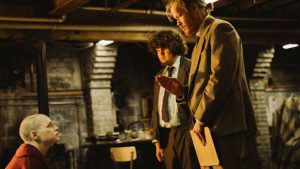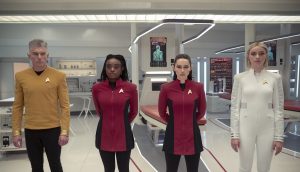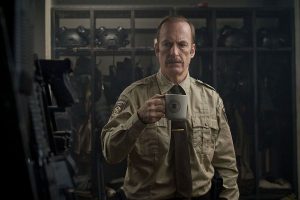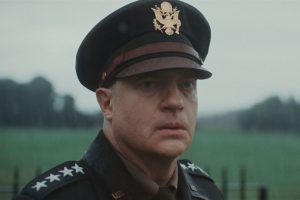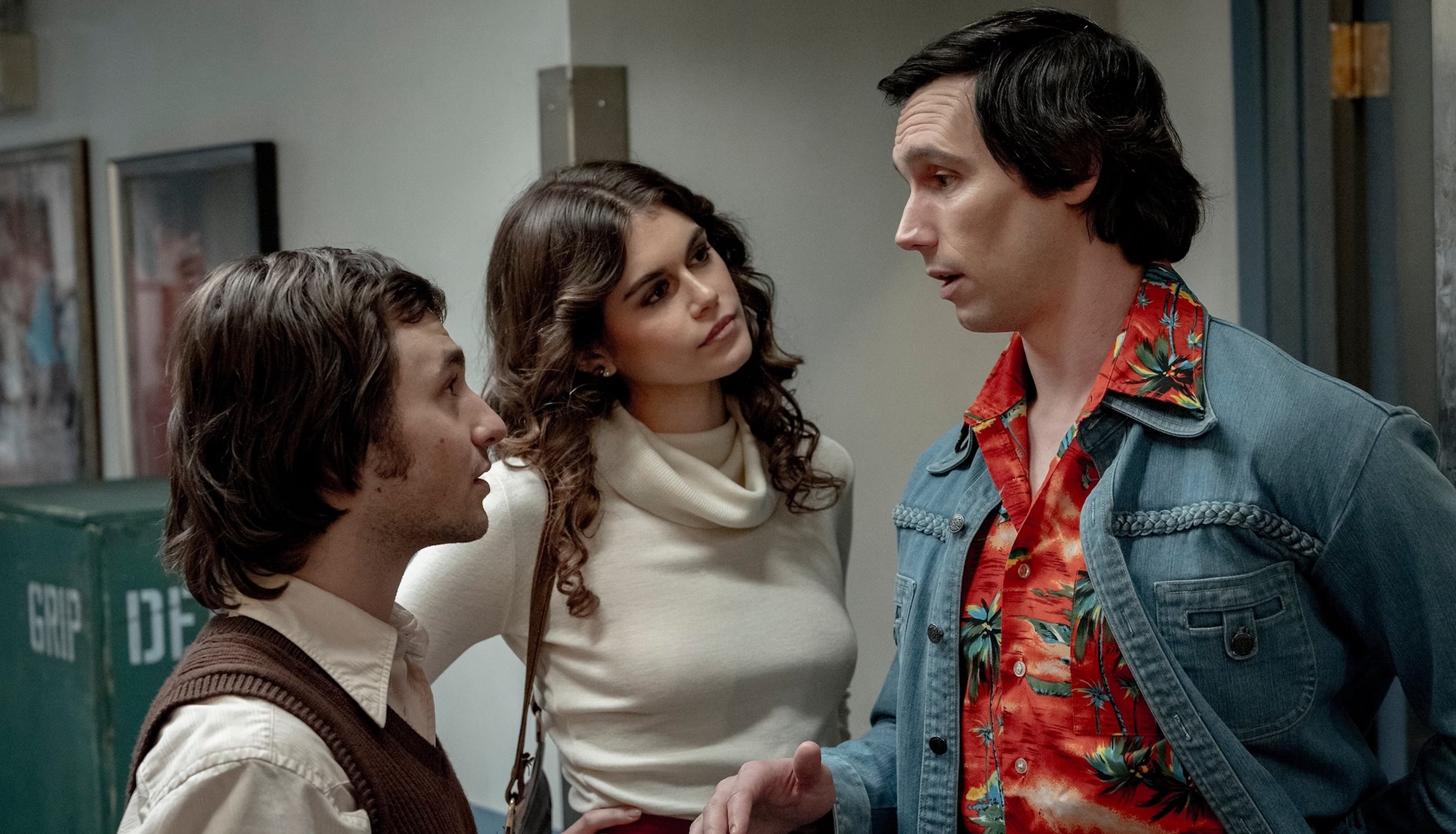
For Jason Reitman, many of the iconic faces that compose Saturday Night Live’s earliest, and oft-glorified, years are more than just comedy legends. They’re friends of the family—or at least work acquaintances. Long before this weekend’s real-time dramedy about SNL’s origin story, Jason’s father Ivan Reitman directed several of the “Not Ready for Primetime Players” in films like Ghostbusters (1984) and Stripes (1981). In fact, Ivan knew many of them as how they are introduced in Jason’s Saturday Night film: hungry no-name comedians scrounging around New York City, looking for a break.
“My father directed the National Lampoon Show, which was a live show that had John Belushi, Gilda Radner, Harold Ramis, and Bill Murray before Saturday Night Live,” Reitman recalls while stepping into the Den of Geek studio to discuss his new film. “So Lorne and my father were moving through similar circles of comedy in Toronto when they were younger. And I feel like what my father did for film, Lorne did for television. These were people that I met, even though some of them I don’t remember. I met John Belushi but do not remember him. And of course I grew up on the set of Stripes and Ghostbusters, and met a lot of these comedians.”
Jason would go on to form his own working relationship with several of them as well. After carving his own path as a director in the 2000s with original hits like Thank You For Smoking and Juno, he helmed the 2021 sequel to his father’s film Ghostbusters: Afterlife, which featured prominent cameos for Aykroyd and Murray. Yet making a film where he had to cast young actors as versions of those people—many of whom he interviewed in preparation for this film—was no easy task. So far, however, those who were there and watched the movie have been impressed.
“Chevy [Chase] saw the film, Laraine [Newman] saw the movie, Billy Crystal, Garrett [Morris] saw the film… and everyone’s been really lovely, really complimentary,” Reitman tells us before adding with a wry smile, “Chevy has a strange way of giving a compliment. He goes, ‘Well you should be embarrassed!’”
Given Chevy Chase’s infamous sense of humor—and much discussed camaraderie around colleagues—that’s got to be high praise, right? Reitman just chuckles, “Yeah, I know. That’s like a 10.”
Played by Cory Michael Smith in Saturday Night as an unflappable ego ready for stardom, Chase is presented as the one “Player” who arrived at 30 Rockefeller Center fully formed. He’s also just one in a legion of iconic personalities boiled down to their essence in a tight 109 minutes. The concept of the movie is unrelenting, too, with Saturday Night being set entirely in the 90 minutes leading up to and then through the first SNL sketch in history, which was broadcast on Oct. 11, 1975. According to Reitman, the film has more than 80 speaking roles, about half of them with individual arcs or journeys that need to be fulfilled in the breathless grind of live television.
Reitman tells us he never dreamed of the film being anything other than a movie presented in real-time, with the intent to capture some of the pressure Reitman says occurs every Saturday at NBC’s famed Studio 8H (Reitman himself worked as a guest writer in the 2000s on the series).
“My writing partner Gil Kenan and I actually interviewed every living person we could find who was in the room on Oct. 11, 1975,” Reitman says. “So [we] spoke to Lorne Michaels, we spoke to Rosie Shuster, we spoke to Dick Ebersol, we spoke to all the writers, and all the cast. People in the production design, costume design, members of Billy Preston’s band, we really tried to gather as many stories as we could. And this movie Saturday Night is like a weaving together of their memories.”
While knowing many of these people throughout his life and career made the material approachable to Reitman—the director says, “I think it was probably easier for me to portray Dan Aykroyd because I knew him already as a person, and I could call him on the phone and ask him questions”—it was the research that made him fully appreciate the scale of SNL’s success. For instance, one subplot in the movie about Lorne Michaels, the SNL executive producer and co-creator, wanting to be the host of Weekend Update was based on Michaels telling Reitman and Kenan a story they’d never heard: Michaels thought he could be one of the cast until he realized belatedly he couldn’t be a producer and one of the kids. He was “Dad now,” in Reitman’s words. Even so, the show reflected an inflection point in youth culture.
“SNL was the Woodstock moment of television,” Reitman argues. “What Woodstock was to music, what The Graduate and Five Easy Pieces, and Harold and Maude were to cinema, SNL was to television. It was the first time you had a show that reflected the generation that was coming up, that grew up on TV, that wanted to see themselves on TV… It’s really a movie about a generational shift, about the young people who ripped television out of the hands of the elders.”
So for Reitman, getting it right in the eyes of those who were there has meant the world. And hopefully that one day might include the original cast member he knows the best.
“I keep on trying to organize a screening for Aykroyd,” Reitman laughs. “Aykroyd lives out on a farm in Ontario, and I just haven’t been able to arrange it. Not from a lack of trying.”
Saturday Night is playing in theaters now.
The post Chevy Chase Gives the SNL Movie Saturday Night a Strange Review appeared first on Den of Geek.


